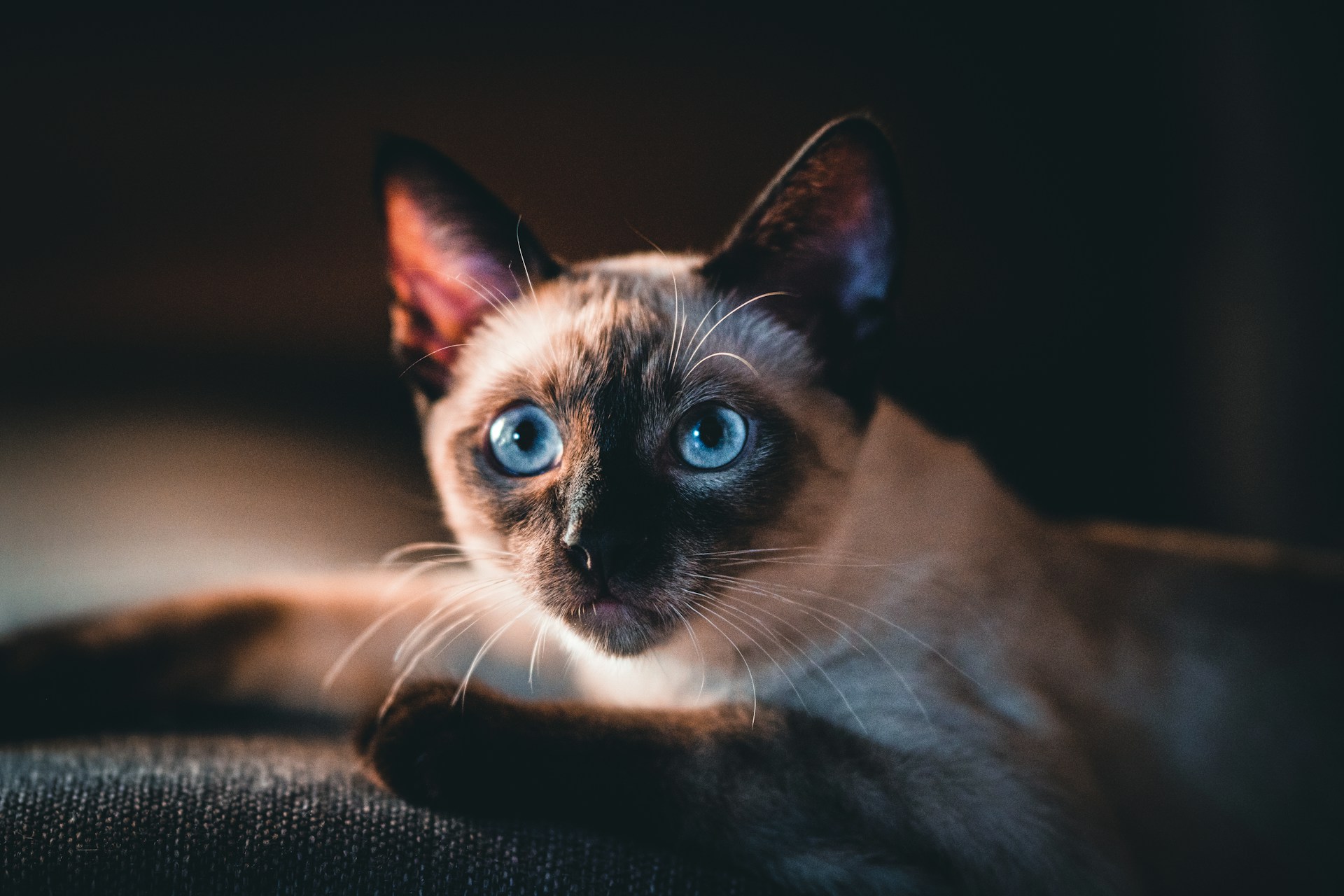
Are Siamese Cats Hypoallergenic? Everything You Need to Know
If you’re considering adding a feline friend to your family but have allergies, you might be wondering: “Are Siamese cats hypoallergenic?” This question is important for people with cat allergies who still want a pet. In this article, we’ll explore whether Siamese cats are hypoallergenic, what makes a cat breed hypoallergenic, and how you can manage allergies if you decide to bring a Siamese into your home.
What Does Hypoallergenic Mean?
Before we dive into the specifics of Siamese cats, let’s clarify what “hypoallergenic” means. A hypoallergenic animal is less likely to trigger allergic reactions in sensitive individuals. This doesn’t mean that hypoallergenic pets are entirely allergen-free, but they produce fewer allergens or shed less than other breeds, reducing the likelihood of an allergic reaction.
Understanding Cat Allergens
Cat allergies are typically triggered by proteins found in cat saliva, skin, and urine. The primary allergen, Fel d 1, is a protein produced in the sebaceous glands and is found in the cat’s skin and fur. When cats groom themselves, they spread this protein onto their fur, which then becomes airborne when they shed.
Are Siamese Cats Hypoallergenic?
So, are Siamese cats hypoallergenic? The answer isn’t simple. While no cat breed is entirely hypoallergenic, Siamese cats are often considered a better choice for people with allergies compared to other breeds. Here’s why:
- Less Shedding: Siamese cats have short, fine fur that sheds less compared to long-haired breeds. Less shedding means fewer allergens are dispersed in the environment.
- Less Grooming: Siamese cats tend to groom themselves less frequently than some other breeds. Since allergens are primarily spread through saliva during grooming, less frequent grooming may result in lower levels of allergens.
- Skin Production: Some studies suggest that certain cat breeds, including Siamese, produce fewer allergens in their skin oils. This reduced production can contribute to a lower overall allergen load.
Factors Affecting Allergies
Several factors influence how allergic a person might be to a Siamese cat:
- Individual Sensitivity: People’s sensitivity to allergens varies widely. Even hypoallergenic cats can cause reactions in those with severe allergies.
- Cat’s Health: A healthy cat is less likely to produce excess allergens. Regular grooming and a healthy diet can help manage allergen levels.
- Home Environment: Keeping your home clean and free from excess dust and dander can also help manage allergies. Air purifiers and regularly cleaning your cat’s bedding can reduce allergen levels.

Tips for Managing Allergies with a Siamese Cat
If you decide to adopt a Siamese cat but have allergies, here are some tips to help manage your symptoms:
- Create Cat-Free Zones: Designate certain areas of your home, such as your bedroom, as cat-free zones. This gives you a safe place to go if your allergies get worse.
- Regular Cleaning: Frequent vacuuming with a HEPA filter, cleaning surfaces, and washing your cat’s bedding can help reduce allergen levels in your home.
- Grooming: Regularly brushing your Siamese cat can help remove loose fur and reduce the amount of dander they spread. This also helps to minimize allergens.
- Allergy Medications: Consult with an allergist about medications or treatments that can help manage your symptoms. Over-the-counter antihistamines may also provide relief.
- Air Purifiers: Using air purifiers with HEPA filters can help capture airborne allergens and improve the air quality in your home.
Caring for a Siamese Cat
What to Feed a Siamese Cat
A balanced diet is essential for the health of your Siamese cat. High-quality commercial cat food is recommended, whether dry, wet, or a combination of both. Look for foods that have meat as the first ingredient and avoid those with a lot of fillers like corn or soy.

How to Feed a Siamese Cat
Establish a feeding routine for your Siamese cat. Feed them at the same times each day to create a consistent schedule. Avoid free-feeding to help maintain a healthy weight. Use puzzle feeders or interactive toys to make mealtime more engaging and mentally stimulating.
How Much Should You Feed a Siamese Cat?
The amount of food your Siamese needs depends on age, weight, and activity level. Follow the feeding guidelines provided on the cat food packaging as a starting point and adjust as necessary. Ask your vet for advice on what to feed your cat.
Nutritional Tips for Siamese
- Protein-Rich Diet: Siamese cats require a high-protein diet to support their lean muscle mass and active lifestyle.
- Hydration: Make sure your cat always has fresh water to drink. Adding wet food to their diet can help them get more moisture.
- Healthy Treats: Limit treats to 10% or less of your cat’s daily caloric intake to prevent obesity.
Behavior and Training Tips for Siamese
Siamese cats are intelligent and can be trained to follow commands, use a litter box, and even perform tricks. Give rewards and compliments to encourage good behavior. Provide plenty of mental and physical stimulation to keep them engaged and prevent boredom.
Fun Activities for Siamese
Siamese cats are energetic and playful. Engage them with interactive toys, laser pointers, and puzzle feeders. Create vertical spaces with cat trees and shelves for climbing and exploring. Regular play sessions help satisfy their hunting instincts and keep them mentally and physically fit.
Siamese Grooming Guide
Considerations for Pet Parents
Owning a Siamese cat is a rewarding experience, but it comes with responsibilities. Make sure you have enough time, resources, and dedication to take care of their needs. Siamese cats can live up to 15 years or more, so be prepared for a long-term commitment. Additionally, consider pet insurance to help cover unexpected veterinary expenses.

Are Siamese cats low shedding?
Yes, Siamese cats are considered low shedding. They have short, fine fur that doesn’t shed as much as long-haired breeds. This makes them a better option for people with allergies. Less shedding means fewer allergens like dander are released into the air, which can help allergy sufferers manage their symptoms better. However, it’s important to remember that no cat is entirely allergy-free.
Are Siamese cats hyper?
Siamese cats are known for being very active and playful, which can sometimes be described as hyper. They have a lot of energy and love to engage in activities like playing with toys, climbing, and exploring their surroundings. Their high energy levels mean they need plenty of mental and physical stimulation to stay happy and healthy. This active nature is one of the reasons why Siamese cats can be so entertaining and engaging as pets.
Do Siamese cats like to cuddle?
Yes, Siamese cats are known for their affectionate nature and often enjoy cuddling with their owners. They are very social and love being close to their human companions. Siamese cats form strong bonds with their families and often seek out attention and physical contact. If you’re looking for a loving and cuddly pet, a Siamese cat can be a great choice.
How long do Siamese cats live?
Siamese cats typically live between 12 to 15 years, but with proper care, they can live even longer. Their lifespan can be influenced by factors such as genetics, diet, healthcare, and living conditions. Regular vet check-ups, a balanced diet, and a loving environment can help ensure your Siamese cat lives a long and healthy life.
What is the best food for Siamese cats?
The best food for Siamese cats is high-quality commercial cat food that meets their nutritional needs. Look for cat food with meat listed as the first ingredient and avoid products with excessive fillers like corn or soy. Both wet and dry food can be suitable, but incorporating wet food can help with hydration. It’s also important to provide a balanced diet that includes proteins, fats, vitamins, and minerals. Consult your vet for specific dietary recommendations based on your cat’s age, weight, and health status.
Final Thoughts: Are Siamese Cats Hypoallergenic?
Are Siamese Cats Hypoallergenic? – While Siamese cats are not entirely hypoallergenic, they are a better choice for many people with allergies compared to other breeds. Their short, fine fur and lower grooming needs contribute to lower allergen levels, making them a viable option for some allergy sufferers. However, because individual sensitivity varies, managing allergies effectively involves choosing the right breed and using strategies to reduce allergen exposure. If you’re considering adopting a Siamese cat and have allergies, it’s important to spend time with the breed before deciding to ensure you can manage your symptoms. With the right care and precautions, a Siamese cat can become a beloved member of your family, even if you have allergies.
FAQS: Are Siamese Cats Hypoallergenic?
Are Siamese cats good for allergy sufferers?
Siamese cats can be better for allergy sufferers than other breeds because they shed less and have lower grooming needs, but they are not completely hypoallergenic.
Which cat is most hypoallergenic?
The Siberian cat is often the most hypoallergenic because it produces fewer allergens than other cats.
Are Siamese cats low shedding?
Yes, Siamese cats shed less than many other breeds.
Are Siamese cats prone to skin problems?
Siamese cats can have some skin problems like allergies and dermatitis, but they are generally healthy.
Why not to get a Siamese cat?
You might not want a Siamese cat if you don’t have time for a pet that needs a lot of attention and social interaction. They can also be very vocal, which some people may not like.
Should you bathe a Siamese cat?
You don’t usually need to bathe a Siamese cat unless they get very dirty. Regular brushing is usually enough.
Are Hairless Cats Hypoallergenic?

I am a dedicated writer and expert in cats, with years of experience studying feline behavior, health, and breeds. Passionate about sharing my knowledge, I provide valuable insights and practical advice to help cat lovers understand and care for their furry companions. When not writing, I enjoy spending time with my beloved cats, continually learning and deepening my expertise.

Leave a Reply